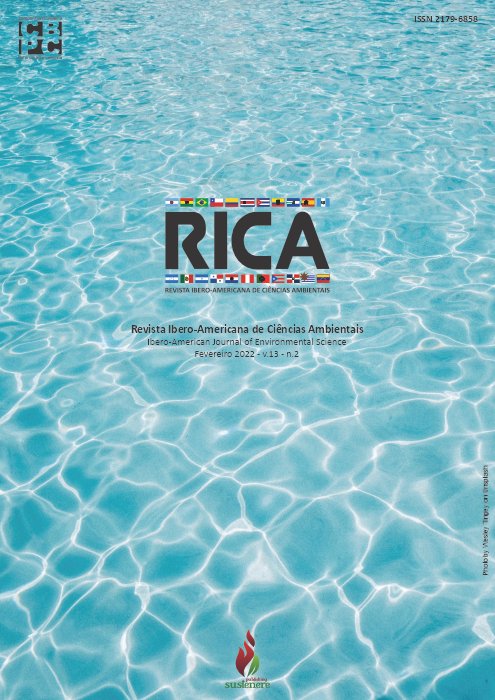Structure performance for the treatment of rain source water based on the SODIS method
DOI:
https://doi.org/10.6008/CBPC2179-6858.2022.002.0010Keywords:
Rainwater harvesting system, Water security, E.ColiAbstract
Population in urban and rural areas are water insecure due to a lack of access to drinking water. In this context, the Solar Water Disinfection (SODIS) method represents a simple and low-cost alternative for the inactivation of microorganisms responsible for waterborne diseases. The objective of the present work was to build and evaluate the performance of a structure for the treatment of rainwater based on the SODIS method. Low-cost materials, such as a PET bottle to store raw water; and a 120 mm PVC pipe, constituted the structure. Two structures were assembled, the first using a reflector made of aluminium foil and the second without a reflector. Samples of rainwater from the rainwater harvesting system installed at the Institute of Science and Technology of Sorocaba (ICTS-Unesp) were collected from February to June 2021. The analysis of pH (digital pHmeter), temperature (infrared thermometer), Color (colourimeter), Turbidity (turbidimeter), total solids, dissolved oxygen (oximeter), total nitrogen and total phosphorus (HACH DR 3900 spectrophotometer), and E.Coli (Colillert method) were performed on raw and treated water, in the Water and Soil Laboratory of ICTS-Unesp. The results in both structures reached an efficiency of 100% in the neutralization of E.Coli bacteria and reduced turbidity. However, secondary treatment is necessary to adjust the physical-chemical standards of potability
Downloads
Downloads
Published
Issue
Section
License
Copyright (c) 2022 Ibero-American Journal of Environmental Sciences

This work is licensed under a Creative Commons Attribution-NonCommercial-NoDerivatives 4.0 International License.
The CBPC - Companhia Brasileira de Produção Científica (Brazil CNPJ: 11.221.422/0001-03) the material rights of the published works. The rights relate to the publication of the work anywhere in the world, including rights to renewals, expansions and dissemination of the contribution, as well as other subsidiary rights. All electronically published works may subsequently be published in printed collections under the coordination of this company and / or its partners. The authors preserve the copyright, but are not allowed to publish the contribution in another medium, printed or digital, in Portuguese or in translation.









